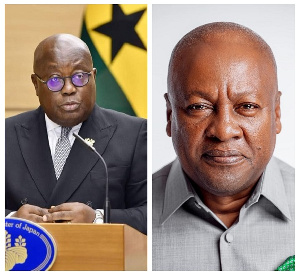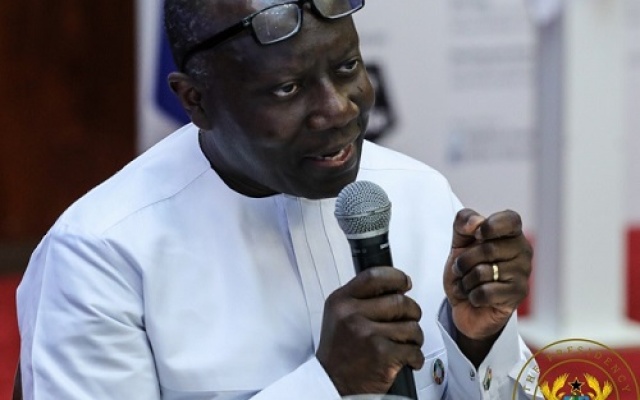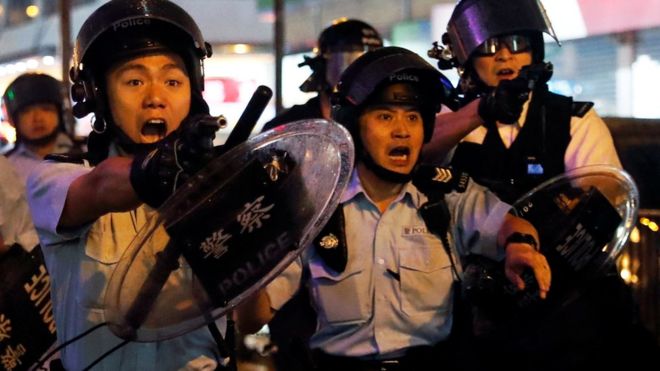Media Commission petitions Akufo-Addo over DTT platform
The National Media Commission (NMC) has petitioned President Nana Addo Dankwa Akufo-Addo and the Speaker of Parliament to intervene and prevail on the Ministry of Communications to review its decision and draft documents on the formation of a company to manage Ghana’s digital terrestrial television (DTT) platform.
According to the NMC, the ministry’s decision and the relevant draft document, if implemented the way they were now, would violate Article 168 of the 1992 Constitution, which vests the commission with the power to appoint the members of the boards and the chief executive officers (CEOs) of state-owned media organisations, in consultation with the President.
Addressing the media in Accra yesterday, the Chairman of the NMC, Nana Kwasi Gyan-Apenteng, said allowing the yet-to-be-formed Central Digital Transformation Company Limited (CDTL) to manage the DTT platform “is a wrong move and a violation of the Constitution”.
“Throughout the discussions and negotiations to this point, the understanding had been that a special entity would be set up to manage it and key stakeholders would be represented on the board of the entity.
“The question and the point of the NMC’s current anxiety revolves around the creation and management of that single entity. We are especially concerned about the mode of appointing its board and CEO,” Nana Gyan-Apenteng said.
He said the commission had already expressed its views to the Ministry of Communications regarding the draft documents and was hopeful that the NMC’s concerns would be addressed.
Background
The Ministry of Communications, in a statement issued in September 2018, announced that Ghana’s DTT infrastructure would be managed as a commercial entity.
Signed by the sector Minister, Mrs Ursula Owusu-Ekuful, the statement said the DTT platform would be incorporated as the Central Digital Transmission Company Limited (CDTCL) and governed by a board.
It said the board would be constituted with representatives from the Ghana Broadcasting Corporation (GBC), the creative arts industry, the Ministry of Finance, the Ministry of Communications, the Ghana Independent Broadcasters Association (GIBA) and the CEO of the CDTCL.
However, Nana Gyan-Apenteng said the digital platform formed part of the state-owned media asset whose governance had been prescribed by the 1992 Constitution.
“Additionally, in as much as television programmes of the Ghana Broadcasting Corporation will be transmitted via the digital platform, the Ministry of Communications’ proposal on appointments to the CDTCL will violate Article 167 (C) that mandates the NMC to insulate the state-owned media from governmental control,” Nana Gyan-Apenteng said.
Apart from violating specific constitutional provisions, he said, the proposal “goes against the spirit of the Constitution and our nation’s drive to achieve even greater freedom and independence of the media”.
“Today, Ghana ranks number One in Africa on the RSF (Reporters Without Borders) Media Freedom Index due largely to the constitutional guarantees that we enjoy,” Mr Apenteng added.
Policy
Throwing more light on the draft document, Mr Nana Gyan-Apenteng said the document on digital broadcasting migration stated that “a single national free-to-air digital signal multiplex platform will be created for the use of all broadcasting, utilising same frequency for transmitting digital TV signals to homes across the country”.
“In effect, we will now have television content producers and a broadcast signal distributor (DBS). Currently, the construction of the platform in Ghana is being funded by the state,” he said.
Nana Gyan-Apenteng said the fact that the CDTCL would be under the direction of a board appointed by the President and a CEO appointed by him violated the provisions made in the Constitution that the NMC must be allowed to play that role.
He said since the switch from analogue to digital was not only a new technological development but also altered the way television was transmitted, it would be extremely important that the right policy framework to address the new situation was pursued.
Source: Graphic.com.gh





